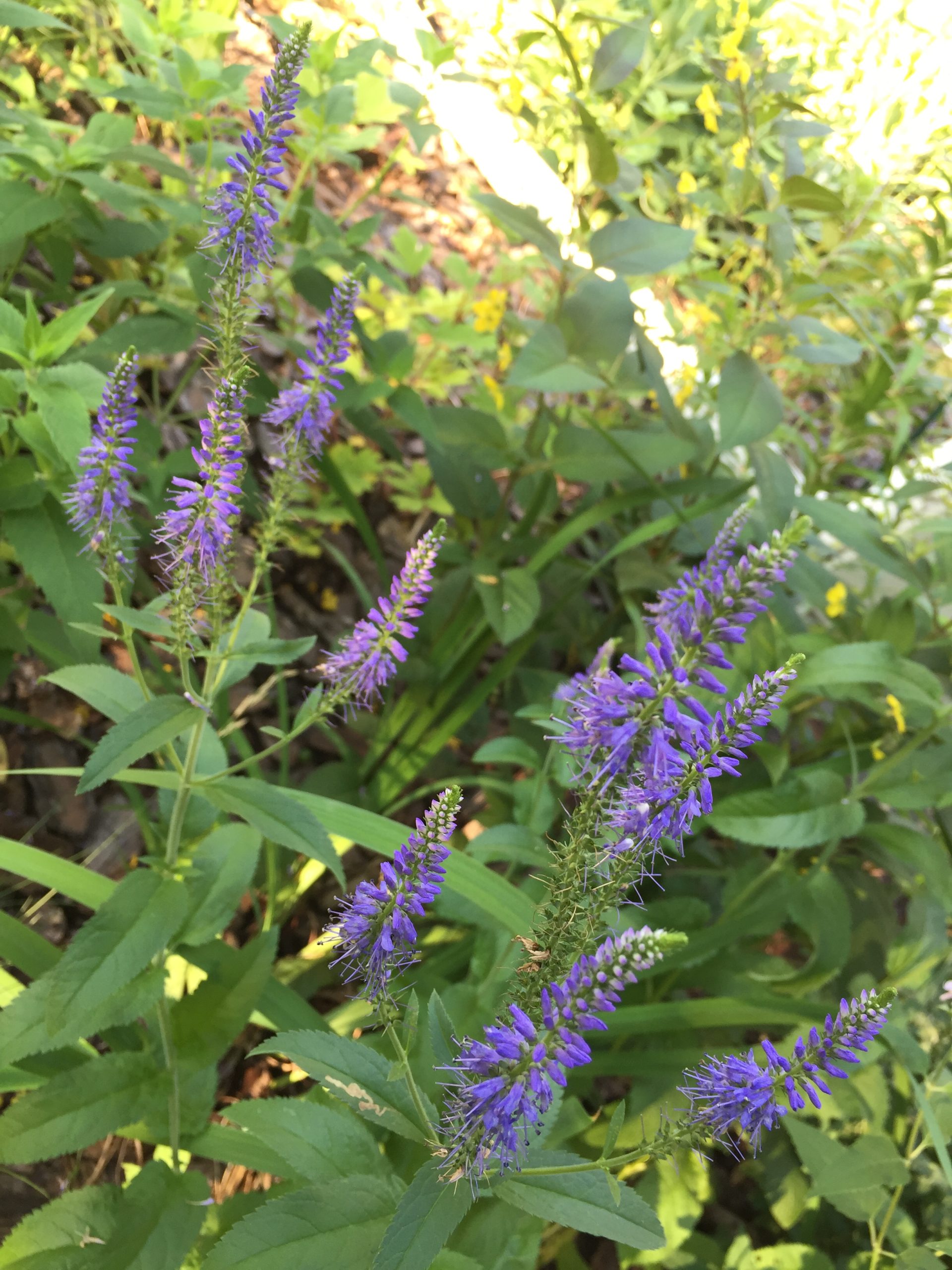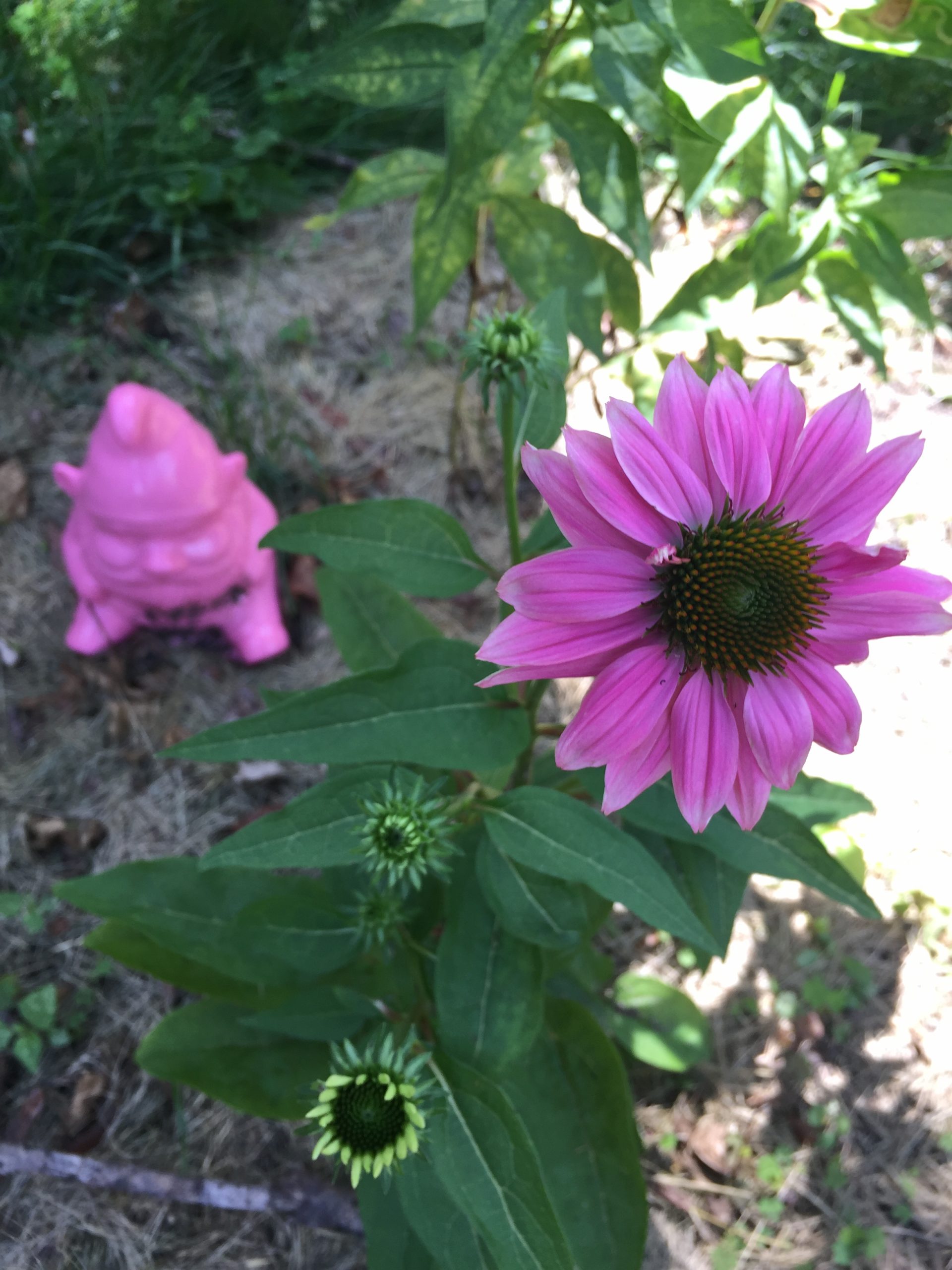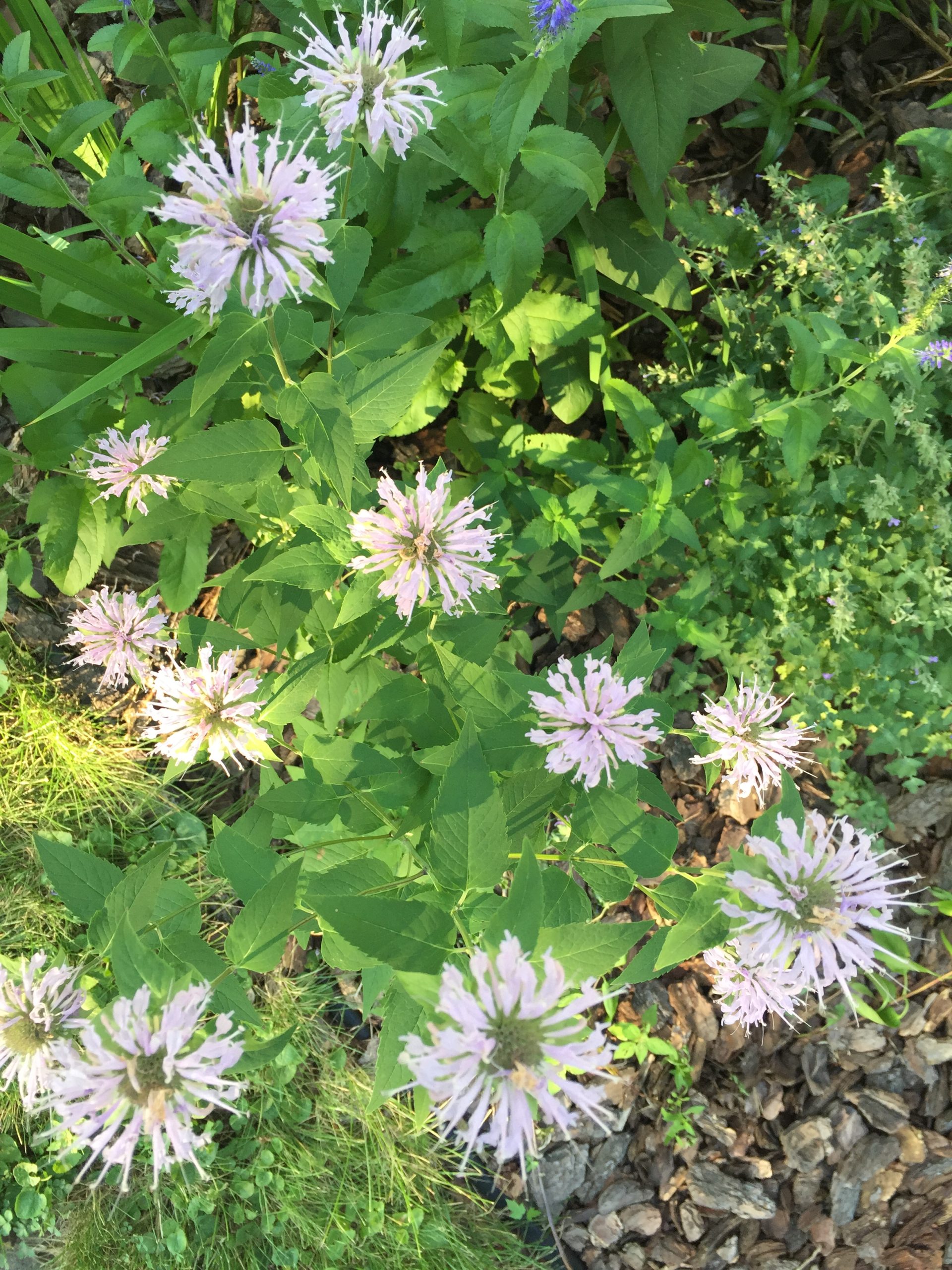In the summer of 2018, I started a perennial pollinator garden in my backyard. Growing plants is a passion of mine, and it has become important to me to garden in a way that is good for me, my local community, and the global population. It became a part of my project to try to purchase as little as possible in the building of this garden. It should not cost a small fortune to grow food and beneficial plants in one’s yard. While searching for places to acquire plants, I discovered vibrant online connectivity surrounding gardening. There were city-wide groups, regional groups, and groups connected by perennials, by vegetables, and by pesticide-free gardening. I found that in many of these gardening communities, facilitated by social media (mainly, Facebook), there were rules against selling plants but plant gifting and exchanges were strongly encouraged. I spent the summer connecting with other gardeners via social media, learning about how to transplant and control pests naturally, going to their houses to dig up their extra ferns, coneflowers, and wild ginger, and having conversations with them (online and in-person) about their gardens. I learned about the benefits of medicinal plants, about some of the city’s historical “beautification” laws that made it hard to have native plant gardens, and about how to control invasive Japanese beetles without pesticides. I received other gifts as well: containers, dirt, and—in one case—some praying mantis, a shiitake mushroom log, and a bottle of homemade wine from a particularly generous gardener. While rather time and labor intensive, my garden cost next to nothing to complete, but the obvious value goes beyond the free plants to the connections and conversations. I found that there is a strong culture among gardeners here to cultivate our yards with virtue—that is, to garden in ways that are good for each other and for the planet.



Some of the pollinator-friendly perennials I have collected from neighbors
For this blog carnival, we were posed the question: how do people use digital technologies to craft communities, and how do those community-building practices intervene in unjust relations? It is difficult to define the value of local community-building as an intervention into the global environmental catastrophes, especially climate change, we face. It’s hard to feel that anything locally-driven, or individually done, can have impact. However, I have been considering how online garden exchanges may unassumingly participate in movement toward environmental justice. By exchanging goods (usually for free), sharing stories and knowledge, and encouraging one another, online gardeners may participate in important cultural, social, and material shifts toward greater ecological appreciation and socially just relations.
In addition to graduate student and gardener, another role I occupy is Environment & Sustainability commissioner for my city government, where we are currently enacting the most ambitious climate action plan in the state of Minnesota (in terms of energy targets). In this role and in my related research, I am often reflecting on the most effective and ethical routes to local climate action with global relevance. My commission frequently debates whether the everyday actions of local residents matter in the face of climate change: how much should we focus on community events and programming? What difference do the daily travel, energy, and food habits of local residents make? When fighting for national and global systemic change, individuals’ actions often seem insignificant. In the landmark essay “Forget Shorter Showers,” Derrick Jensen argues, convincingly, that “consumer culture and the capitalist mindset have taught us to substitute acts of personal consumption (or enlightenment) for organized political resistance.” More and more, recognition exists for the need for locally-initiated political, social, and cultural shifts in order to begin the domino-effect necessary to slow global warming. That being said, our corporations and governments have been known to use identity campaigns to shift focus away from themselves and distract individuals from larger systemic injustices through personal lifestyle goals. In other words, individuals have been guilted into being the scapegoats for—what is more accurately—corporate greed and government mismanagement. Nonetheless, there is an important case to be made for the importance of individuals’ everyday actions in the scheme of things, in that our everyday actions can reinforce certain societal values and beliefs. In her essay “The Most Radical Thing You Can Do,” Rebecca Solnit, in contrast to Jensen, argues for the value of staying home more and consuming less. She discusses how the restless movements of the privileged of the world—and the resources we consume—are ultimately leading to the forced migration of the world’s poor (i.e. social and environmental refugees). In Solnit’s vision, our personal changes speak to the worldwide organizational changes we would like to see; our choices are pressures for economic revision.
So is it possible for online gardening communities to be valuable in the fight for environmental justice? Much can, and has, been said about social networking around the critically important global climate marches and other large-scale and public forms of environmental protest, but I’m also curious about online activity around our mundane, everyday activities. These activities reflect how we continually participate in our economies and, therefore, how we choose to participate in or resist the systems and structures that have led us down the road to catastrophic climate change. The internet has collapsed geographic distance like nothing else, making it a critical component in the united global fight to mitigate human contribution to climate change. While global connectivity is a key element of climate action, many are finding that climate action must begin locally, especially in the US where, currently, we lack national support. For those of us in the global north, particularly those of us who live middle-upper class lives with significant amounts of leisure time, it is important to consider how our everyday actions could be complicit in environmental injustice (while also acknowledging that changing our personal behaviors, alone, won’t halt climate change). For those most vulnerable to the effects of climate change, including coastal residents, the poor, and climate refugees, everyday activities will be turned upside down by coming climate challenges. For this reason, local resources for community gardening, food sharing, and resource exchange will also be vital to building a sustainable future for all.
While the history of writing around gardens and gardening has tended to focus on gardens as sites of rural affluence and leisure, in the last century, US gardening has been on the forefront of conversations surrounding food security, sustainable urban development, and racial equity. Gardens have transformed from places for private enjoyment to important sites for community-building around social and environmental justice (Emmett, 2016). In the past, gardening has also been associated with a “simpler life,” apart from modernity and its technological innovations (p. 5); however, community-driven initiatives such as local online garden exchanges are proof that gardening and technology can coalesce in transformative ways.
Some of the transformative potential of online gardening communities comes from the connections they forge between our online and offline activities. In the groups I’ve participated in, online activities include asking questions and receiving feedback, sharing stories and images of one’s garden, and advertising goods for donation and exchange. There is some archived content, but the main value of the groups is their ongoing news stream, and the best way to participate is to stay active in current, ongoing conversations. Offline activities may include meeting up with other gardeners and visiting their gardens, sharing stories, exchanging plants and other related goods, and making interventions into one’s own garden based on feedback from the group. Gardening and garden writing has a long history of shaping our environments through values and practices that are passed among communities and across generations (Emmett, p. 6). In social media connected gardening, I see this history continuing but with key differences. As with all digitally-networked interactions, the speed and reach is much greater than before. Additionally, whereas the role of collective memory has always been important to gardening, digital networks have amplified our abilities to learn from and grow with one another.
Memory has been an important canon in the history of garden writing, and it takes on renewed meaning in the context of online gardening communities. Digital spaces like “Twin Cities Perennial Gardeners” on Facebook preserve and freely share collective knowledge on gardening in Minnesota. However, like many digital spaces, the importance of memory here goes far beyond the group’s page as a repository (Eyman, 2015; Brooke, 2009). The activities motivated by this online community constitute a living memory for urban midwestern gardening perspectives and practices –one which is continually revised, reframed, and reshared across diverse peoples and their gardens. This type of active, collective memory is especially important in the face of a warming planet. As the climate around us changes, our understanding of how to preserve and cultivate the earth will need to continually be modified. In the Midwest, farmers and gardeners have had to adapt to unseasonably cold and wet growing seasons the past few years (the Midwest is actually a cold spot in the warming world). More changes will come—temperature changes, evolving weather patterns, new invasive species, loss of native species, flooding, air pollution—and through active and adaptive spaces for collective sharing of knowledge and experience (such as these online gardening forums), we will be better prepared to face these challenges. In the meantime, online garden exchanges encourage time spent on rooting into our communities and sharing our resources with one another. Yet another form of resistance to the restless movements and consumptions that make up 1/3 of our national energy usage (Solnit, 2008).
Gardening is an important metaphor and lived reality for socially equitable and environmentally just futures. In the Anthropocene, we must accept that to live in this world is to live in a cultivated world; however, how the world will be cultivated and preserved is up for debate. Gardening communities and practices and the writing around them are well-suited to work toward a justly cultivated world that can be preserved for future generations. The actively evolving community memory sustained by these groups constitutes an important site of ongoing resistance to a way of being that is increasing at odds with the stewardship of our earth. In the wise words of Robin Wall Kimmerer in Braiding Sweetgrass, “Stories are among our most potent tools for restoring the land as well as our relationship to the land. We need to unearth the old stories that live in a place and begin to create new ones, for we are storymakers, not just storytellers.” Online garden exchanges allow us to share our stories and our resources with one another, to continue to learn from the experiences of past generations while modifying our knowledge to help everyone survive and thrive in the face of our current and oncoming environmental challenges.
Bees enjoy some of the wild onion planted in my garden.
References
Brooke, C.G. (2009). Lingua fracta: Toward a rhetoric of new media. New York: Hampton Press.
Emmett, R.S. (2016). Cultivating environmental justice: A literary history of U.S. garden writing. Boston: U of Mass P.
Eyman, D. (2015). Digital rhetoric: Theory, method, practice. Ann Arbor: U of Michigan P.
Jensen, D. (2009, July 7). Forget shorter showers. Orion. Retrieved from https://orionmagazine.org/article/forget-shorter-showers/
Kimmerer, R.W. (2013). Braiding sweetgrass: Indigenous wisdom, scientific knowledge, and the teachings of plants. Minneapolis, MN: Milkweed Editions.
Solnit, R. (2008, October 21). The most radical thing you can do. Orion. Retrieved from https://orionmagazine.org/article/the-most-radical-thing-you-can-do/
